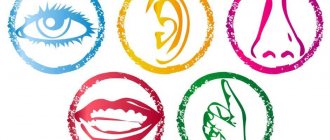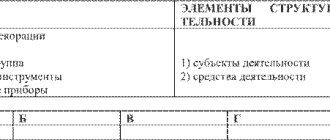Adviсe
- Self-preservation of an adult
- Self-preservation instinct in women
- Self-preservation instinct in a child
- Self-preservation instinct disorders
A fundamental place in nature and human life is occupied by instincts, which are expedient actions without mental awareness of the goal and final result. The basis of human life are two instincts: the instinct of procreation and the instinct of self-preservation, the latter will be discussed further.
Human life is subject to the manifestation of instincts and continues due to them. But the manifestation of the instinct of self-preservation in the human environment is different for different people and is often dulled among the male sex - hence the love of men for extreme sports and entertainment, delicately balancing between life and death. Self-preservation is the fear of factors dangerous to the health and life of a person as a whole, and even suicidal tendencies do not indicate otherwise. A person in a state of depression, affect or psychological/nervous breakdown also experiences fear of death, but at some point other emotions are overwhelmed even by instinctive impulses.
Since the instinct of self-preservation in a person from birth becomes a direct source of life, it is as natural as breathing or eating, and, if necessary, is expressed in forms of behavior of varying degrees of complexity.
Definition
What is the human self-preservation instinct? This is the instinct that allows people to survive. When a car appears on the road, a person will turn away from the car’s trajectory, and if a hurricane begins, a sane individual will hide in the nearest permanent building. Some people say that everything needs to be learned, and this is true. Nature does not always endow people with the same qualities and lay down the same abilities. Some people have a well-developed instinct of self-preservation, while others have to work on its development. How often can a person’s unique ability to preserve his own life come in handy? Daily. Few people think about the fact that hunger is a signal from the body that reminds us that it is time to eat. If it had not been there, the person could have died. The same goes for sleep. A person must sleep, otherwise his body will not be able to tolerate daily physical activity. How else can a defensive reaction aimed at survival manifest itself?
How it manifests itself
Human motivation - what is it
Before giving examples of self-preservation inherent in a person, it is necessary to take a closer look at the forms of its manifestation. The main initial driving force of IS is fear for one's own life. It can manifest itself under the influence of the following factors:
- hunger or thirst - the body can die from a lack of one or the other, a person must constantly take care of food;
- hypothermia or overheating - the need to create conditions suitable for life for the body forces people to build homes, provide themselves with clothing and protect the body from excess temperature;
- illness - in order to protect itself from loss of life as a result of various diseases, humanity has invented and is developing medicine; an individual, feeling unwell, is treated;
- war or external aggression force people to arm themselves, learn self-defense techniques, and call on strangers for help to help them stay alive.
All these actions aimed at survival are embedded in the subconscious and can be performed automatically without the involvement of consciousness.
Law of self-preservation
Manifestation of instinct
What do you do to survive? Nothing? It is not true. The instinct of self-preservation in humans is an innate quality, the manifestations of which few people think about.
- Satisfying hunger. In order not to die, a person must eat daily. What would happen to a person if there were no hunger? Some individuals who have memory problems might die. And it is simply impossible to forget about what you really want.
- Warm clothes. A person protects his body from the cold before going out into the cold. To avoid sunburn, people use sunscreen. By protecting his body, a person thereby saves his life.
- Treatment. You can die from a common cold. For many centuries, people have improved their knowledge of medicine in order to treat their fellow citizens and themselves. If a person gets sick, he will not lie down and moan; the instinct of self-preservation will force the individual to make an appointment with a doctor.
- Armament. If war breaks out, all people will take up arms. The need for peace and tranquility forces a person to defend his rights and not give his life without a fight.
How it manifests itself
A person's self-preservation instinct is activated when he experiences fear for his life. There are many such situations. Here are some of them:
- Hunger, thirst. Both can lead to death. Therefore, a person is constantly in search of food and drink.
- Hypothermia, overheating. Extreme cold or heat disrupts the functioning of the body. That is why you take care of having housing, buying clothes, protecting yourself from the hot sun in summer and frost in winter.
- Diseases. Here the instinct of self-preservation manifests itself in the fact that people go to the hospital as soon as they feel unwell. Generally speaking, the development of medicine is also a manifestation of IP.
- War, aggression from surrounding people. These factors encourage a person to purchase weapons, learn self-defense techniques, and ask for help from someone else. All measures are being taken to help save lives.
The difference between human and animal instinct
How do people differ from their smaller brothers? What distinguishes humans from animals is the instinct of self-preservation. But animals, birds, and even insects have this instinct. What's the difference then? There are two types of self-preservation instinct.
- Unconscious. When a fire starts, a person will not think about what he needs to take. He will quickly run to where there is no fire. The hare and the fox will do the same. Animals in the forest can not only flee from fire, they will instinctively run to water. A person will do the same. After a terrible natural disaster, not all people can explain why they were able to survive. Many say they don't remember where they ran or what they did.
- Deliberate. What distinguishes humans from animals is the instinct of self-preservation of this particular species. In a critical situation, people can remember that it would be nice to save their loved ones, documents and grab valuables. A person can act quickly and accurately in the event of an accident, rescuing the wounded and pulling out the injured.
Instinct to preserve personal freedom
Those who fight to preserve personal freedom exemplify the instinct for freedom. From the cradle, such children protest when they are swaddled, and any type of restriction of freedom also causes rejection, which grows with the baby. The dominant qualities of such people are considered to be the desire for independence, stubbornness, tolerance for pain, and a predisposition to risk. They do not tolerate routine and bureaucracy. Due to the fact that such people have a suppressed instinct for procreation and self-preservation, they very often leave their families. They tend to preserve their freedom, interests and individuality. Such people cannot be too limited in their actions; they do not like to be subordinated.
Lack of instinct
The instinct of self-preservation in humans is an innate quality. But for some individuals it may be absent. Is this bad? People who are not afraid of death are very dangerous. They can, without a twinge of conscience, take the lives of not only themselves, but also those around them. How is it that nature gives some people the instinct of self-preservation, but not others? All people have an instinct, it’s just that some people have it weak, while others have it strong. Society needs risk-taking citizens. People who work as firefighters, police officers and doctors help those who need it survive. Therefore, over time, people become more and more fearless. It is passed on genetically. And if earlier people used instinct for the benefit of society, today they use it to their detriment. If a person does not have the instinct of self-preservation, he may commit suicide or become a bomber. Such people are dangerous both to themselves and to society.
Is being an explorer a result of a person’s upbringing or genetics?
The investigative type can also be called curious. In this type, the instinct of exploration is considered dominant. Since childhood, these are “why people” who have a high level of curiosity, and they show a desire to get to the bottom of everything in everything. Children of this type should always receive deep and confirmed answers to their questions. They read a lot and love to experiment. Often these are creative people, regardless of what they are interested in. Therefore, a researcher is more likely the result of a person’s inclinations than of upbringing.
Violation of instinct
Have you ever met a person who is terrified of something? What is a person's main fear? Fear of death. What distinguishes humans from animals is the instinct of self-preservation. The use of this instinct leads some to insanity and phobias. People are afraid for their own lives, they see threats everywhere, so they install several locks and CCTV cameras at home. Some people worry that the elevator car may break and fall, so they try to avoid using lifting machines. Panic attacks can haunt a person from year to year. This is not a normal reaction. An aggravated defensive reaction indicates psychological problems that the individual has. They must be fought, otherwise they can drive a normal person crazy. The situation gets worse with age, so do not delay visiting a specialist if you have several of the symptoms listed above.
Glossary of terms
In this section we have collected all the terms that you might encounter in this article. Gradually, we will collect from these explanations a real dictionary of a narcologist-psychiatrist. If some concepts remain unclear to you, leave your comments under the articles on our site. We will definitely help you figure it out.
Auto aggression
– activity consciously or unconsciously aimed at causing oneself physical or mental harm. It is considered one of the mechanisms of human psychological defense. It often manifests itself not only in self-harm, but also in insults addressed to oneself, self-deprecation, and even a craving for extreme sports and dangerous professions. In some cases, drug addiction
and alcoholism.
Self-destructiveness
– the same as auto-aggression
.
Heteroaggression
– aggression aimed at external objects (people, animals and objects), as well as situations that a person perceives as a source of danger (mainly in cases where the object of aggression does not actually pose any danger).
Deviance (deviation, deviant behavior)
– personal behavior that differs from generally accepted, socially acceptable, established norms and leads to the application of sanctions by society against the offender (forced treatment, imprisonment, exclusion from society, execution, etc.). Deviance as a social phenomenon is studied by sociology, and as an individual (medical) phenomenon by psychology and psychiatry.
Delinquency
– an antisocial illegal action or inaction of a person that harms both individual citizens and society as a whole.
The instinct of self-preservation
– an innate form of human behavior in the event of danger, the ability to act automatically (instinctively) if necessary to save oneself from the corresponding danger. It is realized through the sensations of pain and fear as limiting factors. In this case, pain is perceived as an abnormal condition that must be stopped, and fear forces one to hide from danger, and at the same time causes the release of an additional portion of adrenaline into the blood.
Hypochondria (hypochondriacal syndrome, hypochondriacal depression)
– excessive concern of the patient about the danger of his situation, for example, the danger of a completely harmless disease. Anxiety arises even if the illness from the disease does not cause much discomfort or the disease is habitual.
Trichophagia
- a complex of mental disorders, the distinctive feature of which is a person’s unhealthy attraction to his own hair - the desire to constantly eat it. According to statistics, however, there are not many patients with this diagnosis. True, many researchers note that people tend to hide such attractions, or not pay any attention to them.
InterpretationTranslationSelf-preservation is a person’s desire to maintain the achieved level of life and activity, based on a protective reflex and life instincts. Self-preservation of life, health, well-being, position and title, peace of mind, etc. there is a desire to “stay” at the “heights” taken. Often a person quite consciously uses certain actions in order not to lose the acquired spiritual and material capital. Self-preservation is most often associated with stability of conditions and the search for ways to counteract destructive factors. But the diversity of social life is such that a person often has to sacrifice the idea of self-preservation (at the front, when defending his homeland). Self-preservation is one of the principles of human ecology and the survival of humanity.
Fundamentals of spiritual culture (encyclopedic dictionary of a teacher).— Yekaterinburg.
V.S. Bezrukova. 2000. Synonyms
: Other books on request “Self-preservation” >>
Self-preservation in the crossword dictionary
Suppression of instinct
People love to tickle their nerves. Today this way of relaxation is very popular. Do you think a person has an instinct of self-preservation if he wants to jump with a parachute or climb a cliff without insurance? There is, but the individual suppresses it by force of will. If the instinct of self-preservation is normal, then it can be silenced for a while. For example, a person can read reviews of those who have successfully jumped with a parachute. Comments that say that these 3-5 seconds of free flight were the best in life really stir the blood. A person wants to get his dose of adrenaline, so he gets on the plane with pleasure.
But suppressing the instinct of self-preservation does not always play into people’s hands. If a person falls into depression and cannot get out of it, he may decide to commit suicide. Causing pain to yourself doesn't seem like such a big deal compared to depression, which hasn't subsided for several years. Due to the fact that instinct can be relegated to the background, people decide to get tattoos or deliberately mutilate their body.
Criticism
K. Lorenz expressed skepticism about the existence of the instinct of self-preservation as an independent biological impulse:
The activity of an organism, which can be named by its function - nutrition, reproduction, or even self-preservation - is, of course, never the result of only one single cause or one single impulse. Therefore, the value of such concepts as the “instinct of reproduction” or the “instinct of self-preservation” is as insignificant as the value of the concept of some special “automotive force”, which I could just as rightly introduce to explain the fact that my old the good car still drives... Anyone who is familiar with pathological violations of innate mechanisms of behavior - we call these mechanisms instincts - will never think that animals, and even people, are guided by some guiding factors that are understandable only from the point of view of the final result , but are not amenable to causal explanation and do not need it. Behavior that is uniform in terms of function - for example, feeding or reproduction - is always due to a very complex interaction of many physiological causes.
> See also
- Attraction to life
- Suicide
- Apoptosis
Childish instinct
With rare exceptions, all children are born with the same instinct of self-preservation. So why does the situation change with age? Excessive care or a dysfunctional family can play a role in the development of the child’s psyche. In the first case, the child will not be afraid of absolutely anything, but in the second, he will grow up too downtrodden. But this will become obvious only later. It was described above how the instinct of self-preservation manifests itself in an adult, but in children and infants the reaction to the world around them is slightly different. They react to everything by screaming. What could be the reasons for continuous sobbing?
- Losing my mother. If the child does not see his mother, he begins to cry. Mom is the person without whom the baby cannot exist.
- Strangers. A crowd of unfamiliar people is a potential danger. Therefore, a child may cry so that his mother will take him away from a strange gathering for him.
- Loud sounds. Music, noise or television disturbs the child's sleep. The instinct of self-preservation tells the baby that loud noises are dangerous.
- Satisfying natural needs. If the baby wants to eat or drink, he will call for adults. Without this, he will not survive, so at the slightest need he raises a strong cry.
content
- Lack of reflexes of the self-preservation instinct in the initial period of human life
- Biological significance of the instinct of parental protection. Stimulants of instinct
- Physiological basis of the instinct of parental protection
- Adolescence crisis
Grasping, sucking and a few more reflexes - that's all,
what he possesses and what protects him from the outside world.
But how then can he survive in this cruel world?
Nature found a way out here: she created the instinct of parental protection .
The “parental protective instinct” is not quite what we imagine.
Everything the baby needs is conveyed by loud crying.
Because all of his reflex arcs are “closed” to the vocal cords.
And this is the instinct of parental protection...
What can instinct be confused with?
A person can sometimes have a poor understanding of his feelings. Violation of the self-preservation instinct helps to become even more confused in the situation. Therefore, people do not always understand what truly poses a danger to them.
- Stupidity. A person may suffer due to overestimation of his own strength or due to lack of information. For example, not knowing that a shark can be found in the open sea, an individual will swim without fear. A predator can take a person by surprise, and the instinct of self-preservation can no longer help. Overestimating one's own strengths may involve conquering a steep mountain. An unprepared person can go to storm the mountains, and halfway through the journey realize that there is no more strength. There will be little choice; if you don’t have enough strength to climb, you’ll have to fall.
- Fear. A person can panic over absolutely nothing. For example, a girl will be afraid to walk around the city center at night only because her grandmother told her that after the war it was impossible to go out at night.
Infrasound receivers. (Part four)
Published: 01/24/2019
Tuning fork infrasound information receivers. Tuning fork receivers are monolithic or composite stone structures with specified resonant properties. These receivers do not have air resonators. They are installed in places where the infrasound signal is concentrated on inhomogeneities in the propagation medium, as well as near large mound receivers. They made it possible to receive infrasonic energy on the surface of a stone or concentrate it at a given point (cromlech). Figured ones are stone infrasound receivers (colossi), made in the form of sculptures or large stones on stone stands. They were installed in places of worship and near temples. Cromlechs are a set of menhirs installed in a ring for in-phase amplification of the infrasound signal. Menhirs are single vertical stones, Read more…
How to develop the instinct of self-preservation
If a child had a quiet childhood, and his mother did not give him the opportunity to climb trees or run through puddles, then the teenager may grow up “greenhouse”. He will know about the dangers that await him only by hearsay. The instinct of self-preservation is a basic instinct, but sometimes you have to develop it through your own efforts. How can this be done? Start playing sports, but not extreme ones, but something like martial arts. Thanks to sports, excess energy will come out, but your health will remain. Try to find a safe hobby. It could be music, art or dance. For a person with excess energy and a love of adrenaline, public speaking and communication with high-ranking persons can be a salvation.
Self-preservation of man
The instinct of self-preservation in humans improves as humanity as a whole develops. The experience of generations is collected and analyzed. And, as always, it is aimed at helping to survive.
In adults, instinct has 2 main manifestations:
- Reproduction. It consists of finding a suitable partner for life, birth and raising offspring.
- Migration. We are talking about finding a place of residence that will be as convenient as possible for starting a family and reproducing.
The instinct of self-preservation in an adult can also be considered a way of adaptation in society. It is a defense mechanism against psychological and emotional trauma. It helps you choose the right social class, status, place in the sun.
Are there people who have no self-preservation instinct?
Everyone has an instinct. Lack of conservation instinct is a serious violation. But there are cases when it is weakened. That is, a person has low sensitivity to dangers and threats around him. We are talking about those who work, for example, as rescuers or those who deliberately risk their lives in order to get adrenaline. They cannot completely turn off the instinct of self-preservation. But we are ready to go against him.
Self-preservation instinct in women
Nature has made the main task of women the bearing and birth of offspring, and subsequent care for them and other family members. This task determines how the instinct of self-preservation will manifest itself. A woman is looking for a man who can provide and protect both her and her children. She shows him respect and remains faithful.
Attention! Cases when a woman tolerates a tyrant or alcoholic husband are not a manifestation of the instinct of self-preservation.
After the birth of children, the female IS is suppressed. Its place is taken by the instinct to protect the child.
How to suppress the instinct of self-preservation
It is difficult to say who has an easier life: a person who loves risk, or a person who is terrified of danger. It’s probably hard for both one and the other. But how can you find the fine line and overcome your fear? You should take up extreme sports. Try to master a motorcycle or ride a racing car, skydive or paraglide. There is no need to completely eradicate fear; you should learn to manage your feelings and, if necessary, push the instinct of self-preservation aside. You can tickle your nerves from time to time by watching horror films or reading horror stories. But don’t get carried away, remember that the line between two extremes is very thin.
What problems might there be with IP?
The main difficulties with the self-preservation instinct (IP) may consist of the following positions:
- pathology;
- increase in IP;
- IP reduction;
- perversion.
The innate sense of self-preservation can only have problems in the case of some pathology of the nervous system. This manifests itself even in infancy, when the child does not remove his hands from a hot object or does not feel pain when struck. Slow reactions or their complete absence can lead to the baby becoming accustomed to pain or not feeling it at all and dying. If such a situation arises, you should immediately consult a doctor.
An increase in IS manifests itself in fear of the novelty of a situation, objects or environment, a violation of the usual course of things. Often such reactions are unmotivated and are accompanied by severe agitation or inhibition. It has been noted that early autism and neuropathy in children are manifested by an increase in IS.
Important! The lack of necessary information or its incorrect interpretation can lead to panic reactions, as a result of which the threat to life only increases.
A heightened sense of self-preservation can be harmful. For example, it happens that a person, afraid to fly on an airplane, does not have time or does not get to the right place at all. As a result, they miss the opportunity to improve their quality of life.
Absence, disturbance or suppression of feelings
A decrease in IP is accompanied by human actions that increase the risk to his health and life in general. This manifests itself in such moments as:
- alcohol, drug and tobacco abuse;
- casual sex (unprotected sex);
- lack of self-control when receiving dubious pleasures;
- demonstration of “fearlessness” under the influence of bad company;
- doing extreme sports without insurance.
This can also include uncontrolled aggression and loss of fear. Such deformations of the sense of self-preservation are possible due to psychological trauma suffered in childhood or prolonged stress.
Lack of IP among drug addicts
Perversion of IP is accompanied by directed aggression (hostile actions) against oneself. As a result of this, a person inflicts injuries on himself, mutilates himself, and attempts to commit suicide. Sometimes such a person has masochistic tendencies.
Is it possible to solve problems on your own?
One example of the human self-preservation instinct is the fear of heights. A person cannot look down from the 100th floor without fear. And that's quite normal. But there are people who cannot walk across the bridge, which is suspended 10 meters above the river. Such fear is stupid and unnatural. Fear that does not interfere with your life and protects you from committing various stupid things is the instinct of self-preservation. But what if it is developed too strongly or too weakly? If you have been trying to improve the situation for several years, but all your attempts are unsuccessful, then consult a doctor. A specialist will be able to help you and save you from panic attacks and other nonsense that your parents or teachers have put into your head.
Types of instincts according to Garbuzov, description
According to the concept of this professor, psychoneurologist and philosopher, there are seven basic instincts. These include: the instinct of procreation, self-preservation, freedom, exploration, preservation of dignity, altruistic and dominance.
There are three dyads into which instincts are grouped. For example, dyad “A” is considered basic; it ensures the physical survival of the individual and the species. This dyad includes two instincts: self-preservation and procreation. But dyad “B”, consisting of the instinct of research and freedom, ensures the primary socialization of a person. The last, third, dyad “B”, which includes the instinct of dominance and preservation of dignity, ensures self-affirmation and self-preservation of a person in the psychosocial aspect. Taken together, all three dyads guarantee a person’s adaptation in real life.
What is human dignity
Self-esteem (SED) is significantly related to self-esteem. But this is not the only component and not its synonym. FSD is a complex system of interdependent feelings and emotions. In addition to self-esteem, self-perception and other products of the self also contribute: self-esteem, self-awareness. Roughly speaking, self-esteem is the result of a person’s assessment of his own importance and worth.
Accordingly, this comes out of self-knowledge, a healthy self-concept. But what is self-knowledge? Getting a person to know himself, accepting himself (with all his advantages and disadvantages, innate characteristics) and identifying interests, needs, forming his own worldview. However, is this based solely on self-esteem and self-analysis? No. From birth, the child perceives himself as adults see him, which they readily express through: “what a good boy”, “you are bad, unhearing”, “you can’t do anything”, “you can’t be relied on”, “you are my support in life”. life." Using these phrases as an example, which of them do you think will form adequate self-esteem and an adequate heart rate, and which will form an underestimated one?
A low sense of self-esteem is based on inadequate criticism and demands, humiliation, insults, coercion from the environment, smoothly turning into elements of the inner world of the individual. As for the overestimated heart rate, its roots are egocentrism and a god complex, permissiveness, and upbringing according to the “family idol” type.
A sense of personal dignity consists not only of a sense of one’s own value, but also of the value of everything that is directly related to the individual:
- family;
- partner in a relationship;
- Job;
- hobbies;
- Friends;
- hobby;
- interests.
Some elements depend on us, this is directly our choice, and some do not. For example, by humiliating his partner, a person humiliates himself, because being in a relationship with this person is his choice. But no one chooses the family into which to be born. Therefore, it is wrong to humiliate yourself because of your parents’ unworthy lifestyle.
Risks of inadequate heart rate
First of all, among the risks, it is worth talking about humiliation. With a low sense of self-esteem, a person allows himself to be humiliated, and with an overestimated sense of self-esteem, he humiliates other people. Naturally, this deteriorates relationships with others. In addition, with an overestimated heart rate, a person suffers from resentment, disappointment, and frustration. If it is underestimated, it takes the role of a victim, suffers from self-flagellation, failure and unhappiness in life.
Surely you are familiar with this evaluation system: “This is below my dignity” / “I am not worthy of this.” However, both of these statements can be either adequate or inadequate. It all depends on the context. But the situation is further aggravated by the difference in interpretation of who a “worthy person” is. There is no single measure of human dignity. Therefore, you should focus on the beliefs and values of a particular society, reference group and your own internal attitudes. Some define dignity by social status, others by level of intelligence, others by socially useful deeds, and others take into account all three components or name a fourth criterion.
Self-esteem also comes with responsibility. Namely, the responsibility for maintaining one’s dignity and avoiding actions that deprive one of self-respect. The borderline of the affected CSD is shame and guilt. A blow to self-esteem and shame from what happened is a common reason for victims to remain silent about rape and beatings. Some people are especially vulnerable; even everyday troubles can hurt their dignity. The result is the same - shame, humiliation, isolation. And if the values that determine self-esteem differ from person to person, from culture to culture and from society to society, then the shame of loss of dignity is inevitable for everyone.










